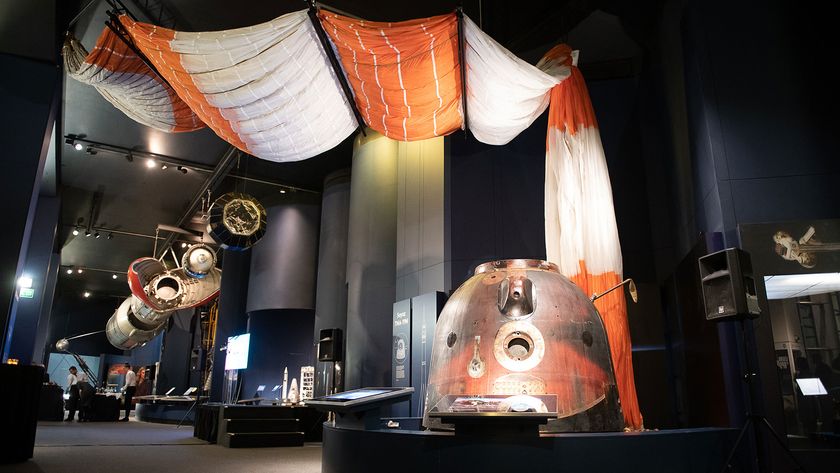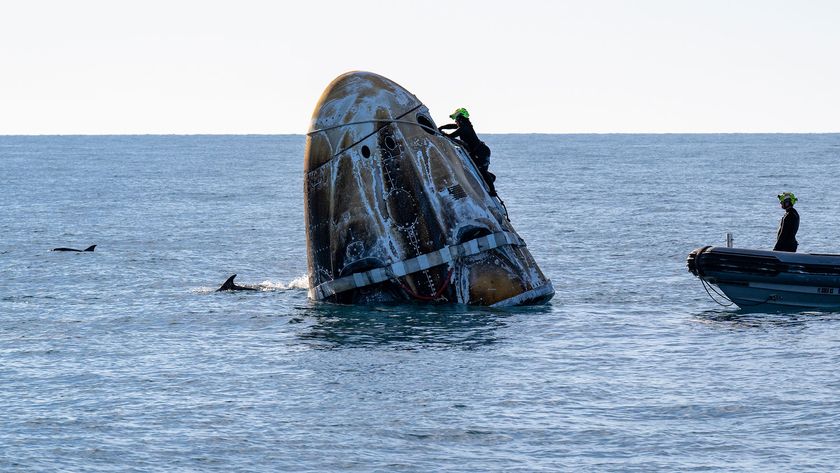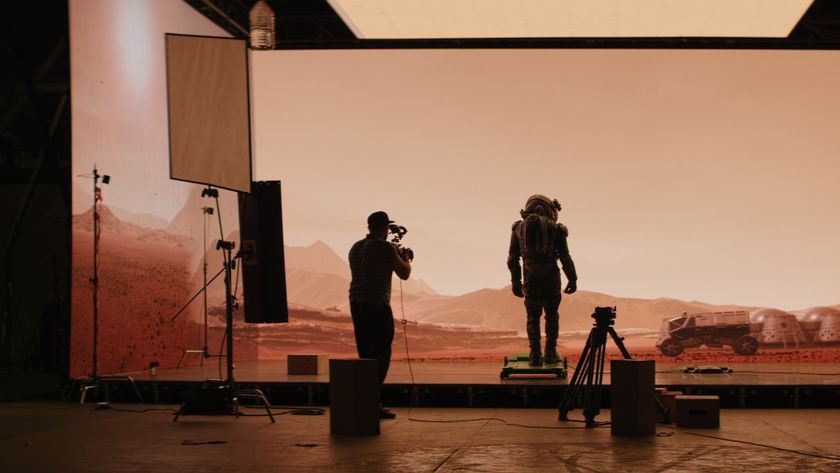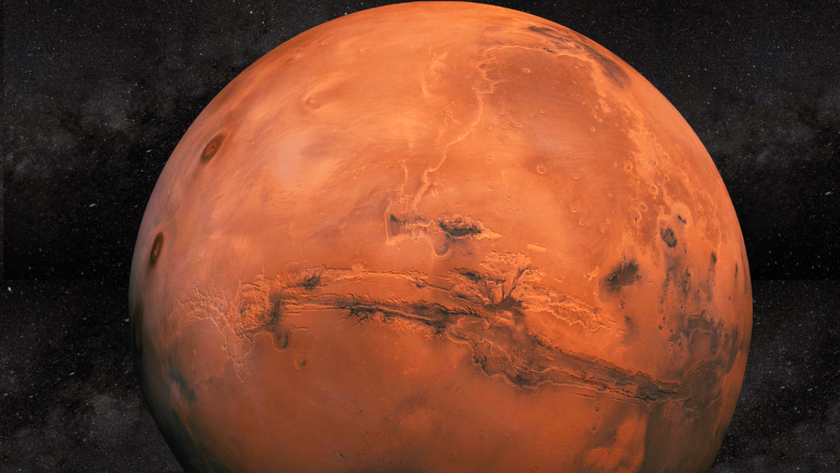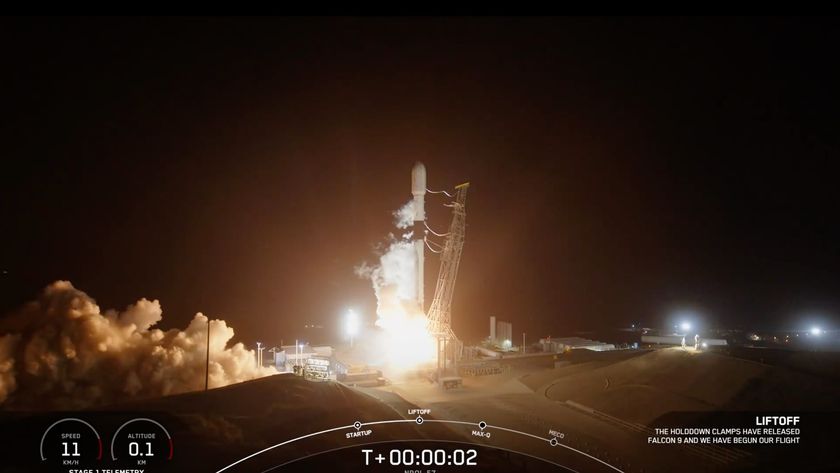Russia Launches Unmanned Supply Ship Toward Space Station
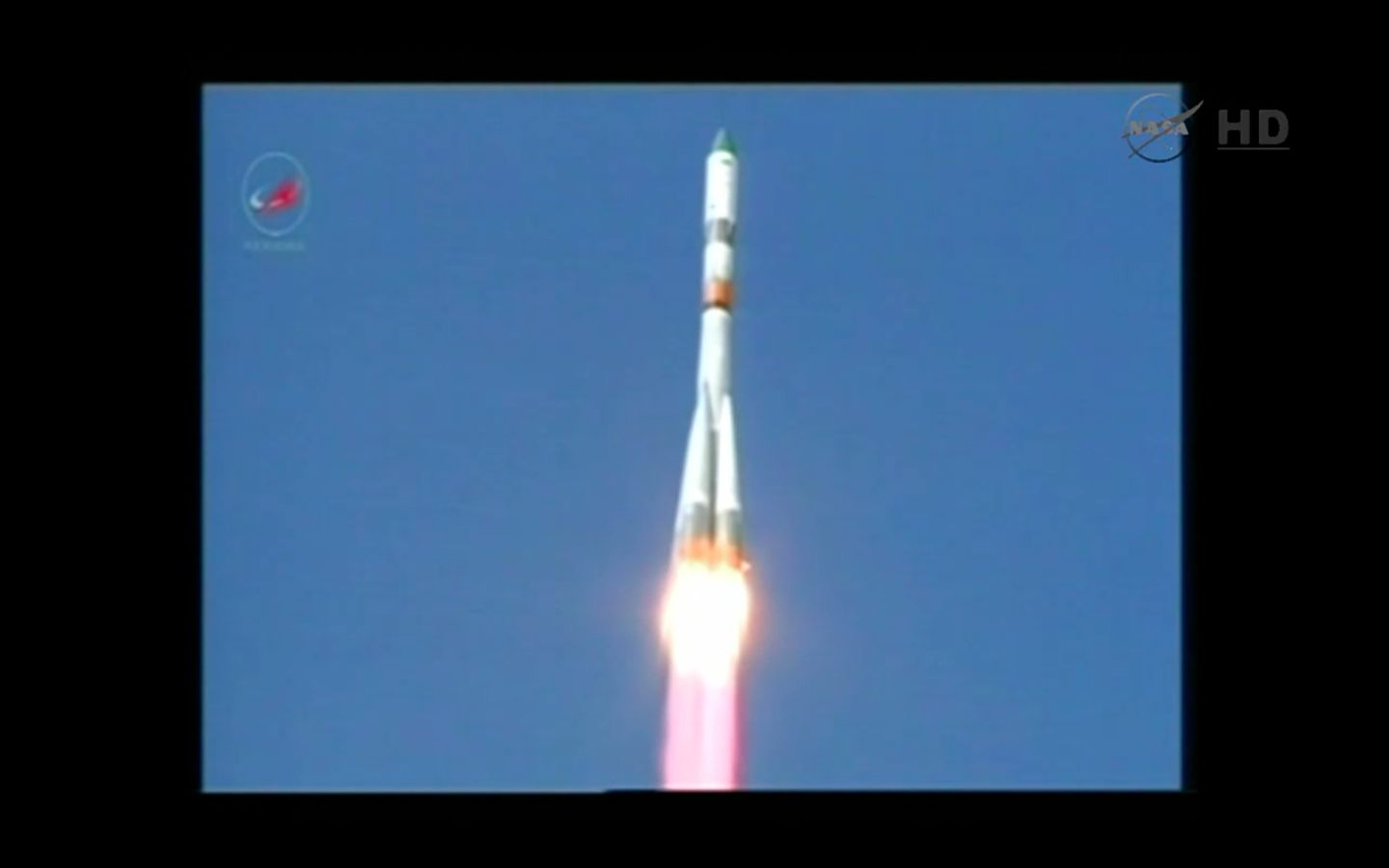
An unmanned Russian supply ship launched toward the International Space Station early Wednesday (Oct. 29), beginning a six-hour cargo delivery that comes one day after a private U.S. rocket exploded while attempting a similar mission.
The robotic Progress 57 spacecraft blasted off from Baikonur Cosmodrome in Kazakhstan atop a Russian Soyuz rocket at 3:09 a.m. EDT (0709 GMT) to begin its space station mission. The spacecraft is carrying nearly 3 tons of supplies for the space station's Expedition 41 crew and is expected to link up with the orbiting lab at 9:09 a.m. EDT (1309 GMT).
Russia's successful Progress launch followed the disappointing failure of a U.S. commercial Antares rocket one day earlier. Built by the Virginia-based company Orbital Sciences Corporation, the Antares rocket exploded about 10 seconds after lifting off from its launch pad at NASA's Wallops Flight Facility on Wallops Island, Virginia. An investigation into the launch failure is ongoing.
Nearly 5,000 lbs. (2,268 kilograms) of space station supplies aboard a robotic Cygnus cargo ship that sat atop the Antares rocket were destroyed when the booster exploded. But that lost cargo, NASA officials said, won't put the space station crew in any danger of running out of food, water or air. [See photos of the Antares rocket explosion]

"The crew of the International Space Station is in no danger of running out of food or other critical supplies," Bill Gerstenmaier, NASA's associate administrator for human exploration and operations, said in a statement.
In a press conference just after the Antares launch failure, NASA station program manager Mike Suffredini told reporters that the orbiting laboratory has enough supplies to sustain its crew through at least March 2015, even without the Progress 57 spacecraft launching today and a planned U.S. SpaceX Dragon capsule launch in December.
Russia's Progress cargo ships and the U.S. Cygnus and Dragon vehicles form just part of the robotic cargo ship fleet that supports the International Space Station. Japan's space agency also delivers supplies to the station using its H-2 Transfer Vehicle cargo tugs. The European Space Agency also launched five huge robotic cargo ships to the station between March 2008 and August 2014, when the fifth and final mission flew.
Get the Space.com Newsletter
Breaking space news, the latest updates on rocket launches, skywatching events and more!
The Progress 57 cargo ship will orbit the Earth four times before arriving at the space station. You can watch the docking webcast live on Space.com, courtesy of NASA TV. The webcast will begin at 8:30 a.m. EDT (1230 GMT).
Email Tariq Malik at tmalik@space.com or follow him @tariqjmalik and Google+. Follow us @Spacedotcom, Facebook and Google+. Original article on Space.com.
Join our Space Forums to keep talking space on the latest missions, night sky and more! And if you have a news tip, correction or comment, let us know at: community@space.com.

Tariq is the Editor-in-Chief of Space.com and joined the team in 2001, first as an intern and staff writer, and later as an editor. He covers human spaceflight, exploration and space science, as well as skywatching and entertainment. He became Space.com's Managing Editor in 2009 and Editor-in-Chief in 2019. Before joining Space.com, Tariq was a staff reporter for The Los Angeles Times covering education and city beats in La Habra, Fullerton and Huntington Beach. In October 2022, Tariq received the Harry Kolcum Award for excellence in space reporting from the National Space Club Florida Committee. He is also an Eagle Scout (yes, he has the Space Exploration merit badge) and went to Space Camp four times as a kid and a fifth time as an adult. He has journalism degrees from the University of Southern California and New York University. You can find Tariq at Space.com and as the co-host to the This Week In Space podcast with space historian Rod Pyle on the TWiT network. To see his latest project, you can follow Tariq on Twitter @tariqjmalik.
